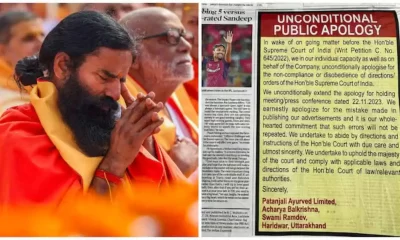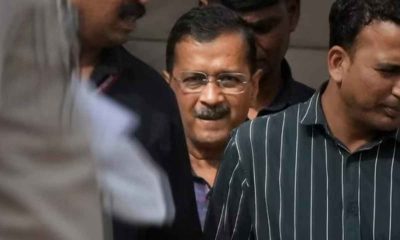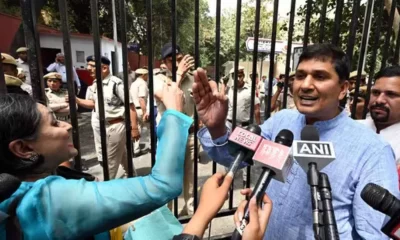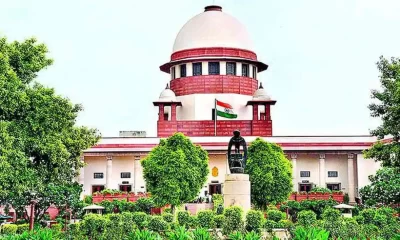India News
Judiciary must share equal blame for lapses in 1984 riots cases: SIT head Justice (retd) Dhingra
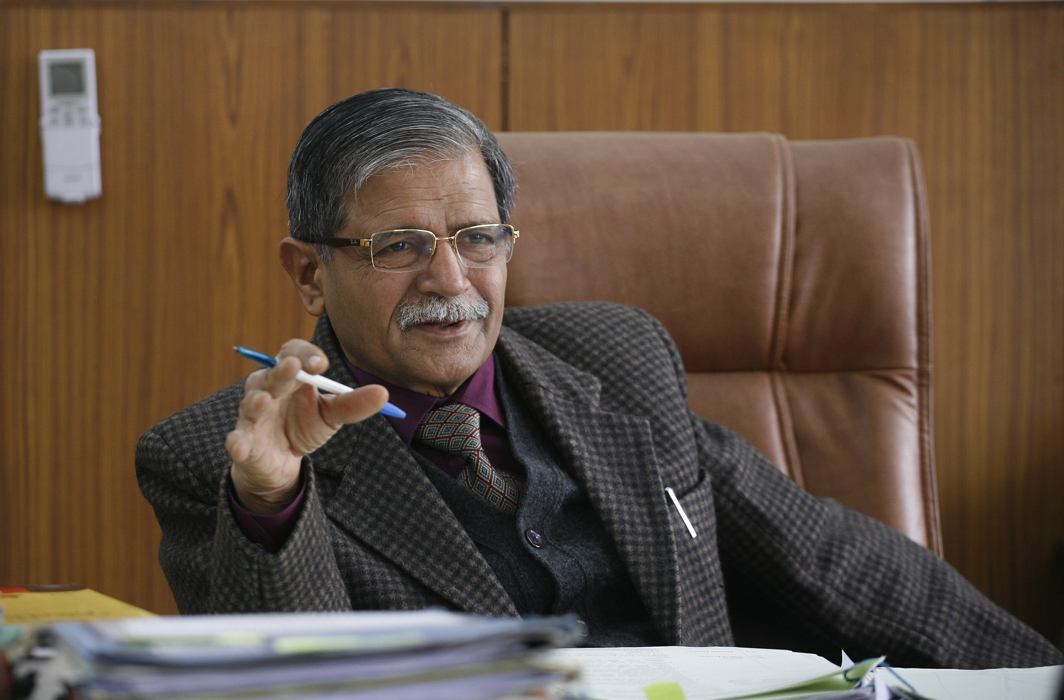
By Puneet Nicholas Yadav
Over three decades after the 1984 anti-Sikh riots, the legal process of bringing the arsonists to justice continues to drag on. The conviction of Congress leader Sajjan Kumar, 33 years after the pogrom, has given hope to riot victims that justice may finally catch up and the accused, many political heavyweights of their time, will pay for their crimes.
The life sentence awarded to Kumar by the Delhi High Court for his role in stoking the riots that broke out after the assassination of Prime Minister Indira Gandhi by her Sikh bodyguards on October 31, 1984, was the result of a continued legal battle against him by a few who ensured that the case against the Congress leader is not dismissed.
However, there were as many as 241 cases linked with the riots that had been shut abruptly over the years either because the investigations had met a dead end or because the prosecution failed to make out a credible case against the accused in the courts.
On January 11, 2018, the Supreme Court had constituted a three-member special investigation team (SIT) – the 11th such commission, investigation or committee looking into the riot cases – headed by retired Delhi High Court judge, Justice SN Dhingra. The SIT was supposed to reexamine files of 186 of these 241 shut cases and submit an interim report, by mid-March, recommending which of these cases can be reopened for investigation. The SIT is yet to file its report because its third member refused to join the team and the request for the top court to appoint a new member was not disposed off till December – over 10 months after Justice Dhingra filed his application for necessary directions.
In December, the Supreme Court finally informed the SIT that it could continue the probe with existing members – Justice (retd.) Dhingra and IPS officer Abhishek Dular – and that the interim report should be filed by March 2019.
In an exclusive interview to India Legal, Justice (retd.) SN Dhingra spoke candidly about the challenges his SIT faces.
Q. A year has passed since the SIT was constituted by the Supreme Court to suggest if any of the 186 riot cases that were closed can be re-opened. Your interim report was to be filed in March last year but hasn’t been so far. Why the delay?
A. There was a bunch of 199 cases that another SIT (appointed in February 2015 by Prime Minister Narendra Modi’s government and headed by IPS officer Pramod Asthana) had recommended for closure along with 42 other cases that a Supreme Court appointed supervisory committee of two of its former judges had examined. Some petitioners along with advocate HS Phoolka had told the Supreme Court that the recommendation of the (Asthana) SIT is not proper and cases should not be closed hurriedly. The court then constituted the SIT with me as its chairman and two other members (IPS officer Abhishek Dular and former special director general of the Border Security Force, Rajdeep Singh). I and Mr Dular joined the probe but Mr Singh expressed his inability to join. We filed an application in the Supreme Court saying the third member has not joined and the court should appoint a substitute. The application did not come up for hearing for many months. When it was listed recently, the Centre recommended the substitute but the court said that the existing two members should carry out the probe. So, the procedural delay in clearing our application for nominating a substitute for Mr Singh, prohibited us from meeting the deadline set by the court for filing the interim report. We have been given time till March to submit our findings and I will try to stick by the new deadline
Q. No one seems to know which cases your SIT is examining.
A. The court had said 186 of the 199 closed cases should be examined by us but it sent us details of all 199 cases on which the Asthana SIT had submitted its report. I am looking at all these cases and can’t disclose their details right now because we are still in the process of going through the case files individually. It is a time consuming process. But, rest assured, even if there is a small possibility of re-investigating the case, we will recommend so.
Q. Your SIT has issued two public notices asking people to come forward and provide information that might help in your probe. After 34 years of the riots, many witnesses are no more and some may not want to old wounds to be cut open. How difficult is your task and have any people come forward yet?
A. Very few people have come forward so far. Some have sent us anonymous letters alleging the involvement of certain people in the riots but without mentioning the FIRs in the case. If we don’t have the FIR numbers, how do we track the record of the case? There are many cases where the witnesses have died; many others where the accused are also dead. We have written to various police stations asking for details, case files, original FIRs and are hopeful that we will get something credible to move forward on.
Q. The Delhi Sikh Gurdwara Management Committee has written to you urging that the riots case against Madhya Pradesh chief minister Kamal Nath must also be recommended for re-investigation?
A. My mandate is limited to the 199 cases that were examined and recommended for closure by the Asthana SIT. I do not know, as yet, if the cases against Kamal Nath are part of this bunch. I have called for details of the FIR which supposedly name Kamal Nath and if the case is under our jurisdiction and we find enough grounds to recommend re-opening it, we will certainly do it.
Q. When the SC appointed you to lead the SIT, many said there was a conflict of interest because you presided over the riots cases during your stint as judge at the Karkardooma court and that your orders for incarceration of Congress leader HKL Bhagat and verdict against Kishori Lal showed you are pro-conviction. If you do recommend reopening of cases, do you think another controversy will erupt?
A. I am immune to all these allegations and accusations. I have worked as a judge for nearly 25 years. People find politics in everything. If I think of these opinions, I will never be able to do my duty. There is no room for fear and intimidation.
Q. But is there pressure on you to re-open some cases…
A. I do not act under fear nor under the hope of any professional benefits. Prior to my appointment as special judge of the riot cases at Karkardooma Courts in 1995, for three years in a row, I was awarded an A Grade in my annual ACR. After I became the riots judge, for three years the Delhi High Court did not write my ACR. Finally when I did get my ACR, and by then I had already convicted so many people in these cases, I was informed that my grade was reduced from A to B+ without citing any reasons. I wrote a letter to the high court saying if speaking the truth is a sin for a judge, then, rest assured, I shall continue committing this sin as long as I am working as a judge. For several years then on, I was given B+ in the ACR. Then, when I presided over the trial in the Parliament attack case and ordered a conviction, my grade was further reduced to B. The point I am making is, that fears and pressures are not known to me.
Q. Do you think if it wasn’t for these judgments, you would have been elevated to the Delhi High Court much earlier than you were?
A. (Smiles and nods) I was not a career-oriented judge who would worry about my promotion. What has always mattered to me is that I must do my duty with sincerity. I do not bother about the price that I have to pay for my actions and my convictions.
Q. Sajjan Kumar’s conviction has come after 33 years and has been challenged in the Supreme Court. There’s no clarity on where the cases against Jagdish Tytler is headed. You are still examining whether closed cases can be reopened. What does this say about the justice system if after over three decades of a massacre, we are still struggling for adjudicating cases at the trial stage?
A. I firmly believe that the agony of the victims will not end. People have lost their near ones. After 30 years, if the courts decide their cases, how does it help lessen the pain of the victims? It may make for good news headlines but I do not consider this to be justice. Action should have been taken within a reasonable time. I don’t subscribe to the view that after 40 years you can give justice. The purpose of giving justice is not to feed masala to newspapers.
Q. Who failed the riot victims?
A. It is the failure of the entire state machinery, including the investigating agencies, the government and the judiciary.
Q. So you are saying the judiciary must share the blame?
A. I am saying that the judiciary must share equal blame. The Sajjan Kumar that you are talking about, I remember when many years ago the CBI went to arrest him early one morning, he managed to gather his supporters and prevent the CBI from arresting him. In the meantime, he called his lawyer, RK Anand, who moved the Delhi High Court for anticipatory bail. Now, there is a legal process to followed while disposing off an anticipatory bail application – the prosecution has to be given a notice, has to be heard and only then a final decision can be given. In Kumar’s case, the high court opened at 10.30 and by 11, the then registrar of the Delhi High Court had communicated to the CBI officers still waiting outside Kumar’s residence that anticipatory bail has been granted. Who instructed the registrar to directly communicate the orders to the CBI? Now, what will you call this – support of the judiciary to the victim or the accused? What is the message that the high court sent to trial courts?
Q. There is still a huge amount of work that your SIT needs to complete before it files its report. How confident are you of meeting the March deadline?
A. We are trying our best to examine the files and summon necessary records at the earliest so that we meet the deadline. I know that I have to be thorough because I can’t make the same mistakes that earlier commissions have made. I will give a case by case report for all 199 cases and a consolidated report for the entire bunch of cases. My hope is to meet the deadline but I might need an extension for a month or two given the volume of work, but, certainly not longer than that. – India Legal
India News
Sunita Kejriwal, Atishi meet Arvind Kejriwal in Tihar jail, discuss Delhi governance
AAP had earlier accused the Tihar jail administration of cancelling Sunita Kejriwal’s meeting with Arvind Kejriwal.
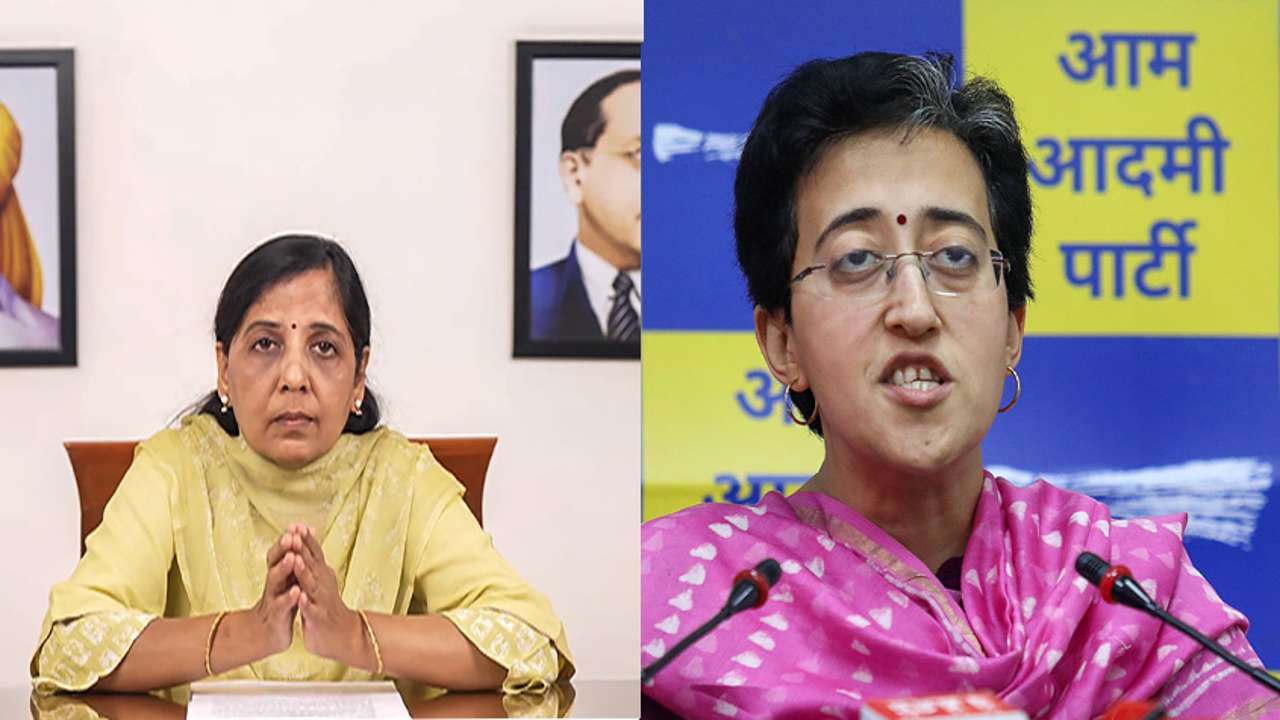
Delhi Chief Minister’s wife Sunita Kejriwal and AAP minister Atishi met Arvind Kejriwal in the Tihar Jail today. After their meeting, both dicussed the specifics of their meeting with CM. They said that the jailed CM was asking about the Delhi governance matter.
Kejriwal is expected to see Punjab Chief Minister Bhagwan Mann tomorrow.
Atishi, who is in charge of six departments in the Delhi Cabinet, said, she visited with the Chief Minister. When she asked how he was doing, he skipped answering her, rather he asked how the work is going in Delhi. He said, not to ask about his condition. During their meet, the Delhhi CM also asked about the school kids that are they getting books? Does Mohalla Clinic have access to medications? Atishi continued.
The Chief Minister said that as summer is approaching, Delhi shouldn’t have any water-related issues. He sent a message to the women of Delhi, saying he is planning to give them Rs 1000.
The Aam Aadmi Party had earlier claimed that Kejriwal’s wife, Sunita Kejriwal, was not allowed to see him. However, in a statement, Delhi minister Atishi said that Sunita Kejriwal will see her husband later on in the day and that two people were granted permission, but Sunita ji’s was cancelled. Athishi said, every day, new laws are enacted, she did not have permission, but when their lawyers won this legal battle, she was permitted to see Kejriwal.
AAP’s campaign for the Lok Sabha in the national capital and other states will be led by Mrs. Kejriwal, the party said. The campaign kicked off with a roadshow to support AAP’s candidate for East Delhi, Kuldeep Kumar. This is the first time that Mrs. Kejriwal has entered the political sphere actively.
Party leader Sanjay Singh asserted last week that Atishi’s name was added to the list of visitors for Mr. Kejriwal following the name of Delhi Health Minister Saurabh Bharadwaj.
Meanwhile, in the Delhi Liquor Policy case, Arvind Kejriwal was taken into custody in March. On March 21, the Enforcement Directorate (ED) detained him in connection with a money laundering case. In the same case, Manish Sisodia, his former deputy, is jailed.
India News
FIR filed against YouTube channel in Punjab for defaming AAP MP Raghav Chadha
The case was filed on the complaint of the son of an AAP candidate from the Ludhiana Lok Sabha seat.
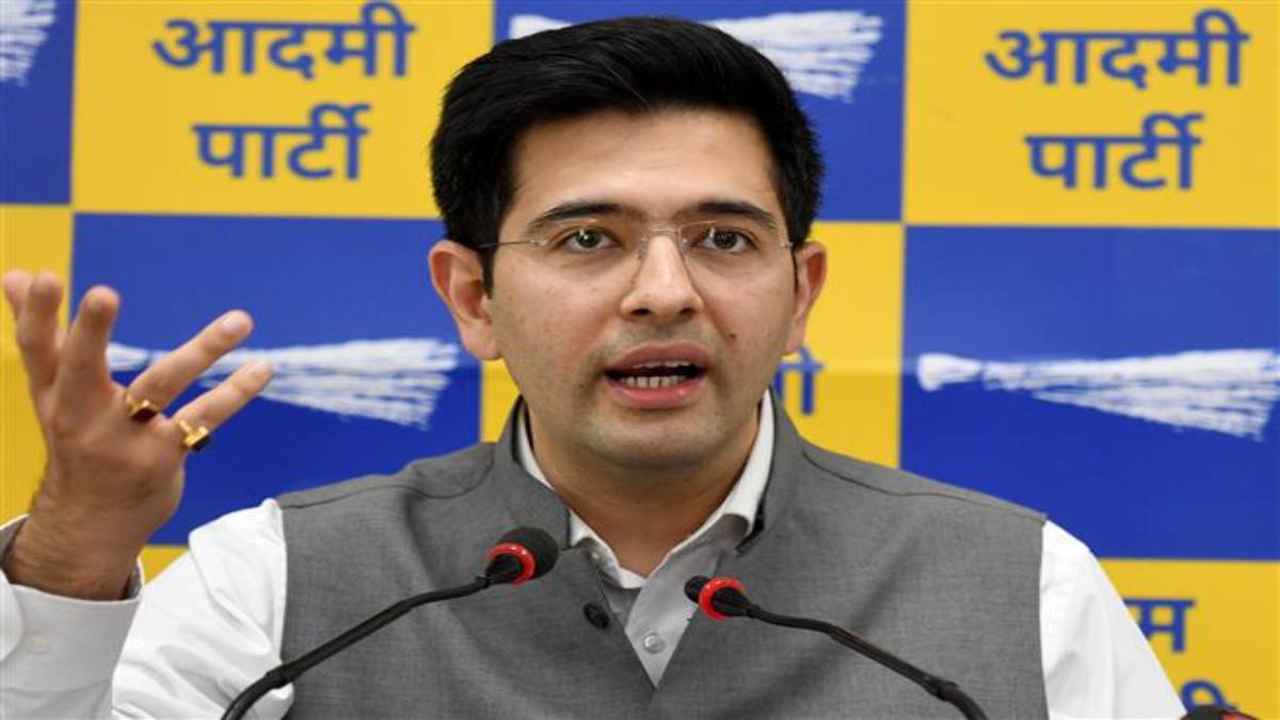
A First Information Report (FIR) has been filed by Punjab Police against a YouTube channel for allegedly linking Aam Aadmi Party (AAP) MP Raghav Chadha to wanted man Vijay Mallya.
The AAP candidate for the Ludhiana Lok Sabha constituency, Ashok Pappi Prashar’s son, Vikas Prashar, filed a formal complaint against the YouTube station Capital TV. The complainant held the channel accountable for airing misleading and defamatory content.
The statements/contents of false videos on Capital TV channel and others shall harm the public peace and harmony…and is likely to promote enmity between different groups in the country on grounds of religion, caste, race and community, the complaint said.
In his complaint, Vikas allegedly claimed that the YouTube channel was disseminating misleading information and that it was defaming Raghav Chadha by equating him with Mallya.
Vijay Mallya fled to the UK after taking public money, and similarly, a Rajya Sabha member left for England, claiming it was for eye treatment, according to the FIR, which noted claims made by the YouTube channel.
The AAP leader will reportedly get a vitrectomy in the UK to save the retina from detaching from the eye earlier. According to the research, this disorder, which is characterized by the formation of tiny holes in the retina, is very dangerous for vision and must be treated immediately to prevent irreversible damage.
The channel referred to Chadha as a Khalistani supporter following his encounter with UK MP Preet Gill, according to the complaint.
Section 153A of the Indian Penal Code (IPC) deals with inciting religious hatred among various groups, Section 469 deals with forgeries, and Section 505 deals with making statements that could incite public disturbances.
The FIR also contains Section 66 of the Information Technology Act, which addresses offenses involving computers.
India News
Security forces arrest 14 Pakistani nationals with around 86 kg of drugs, worth Rs 600 crore near Gujarat Coast
The Indian Coast Guard took to X and wrote in a breathtaking overnight operation, Indian Coast Guard undertook an intelligence-based anti-narcotics operation at sea on 28 Apr 24. About 86 kg of narcotics which is worth Rs 600 crore has been apprehended along with the arrest of 14 Pakistani nationals.
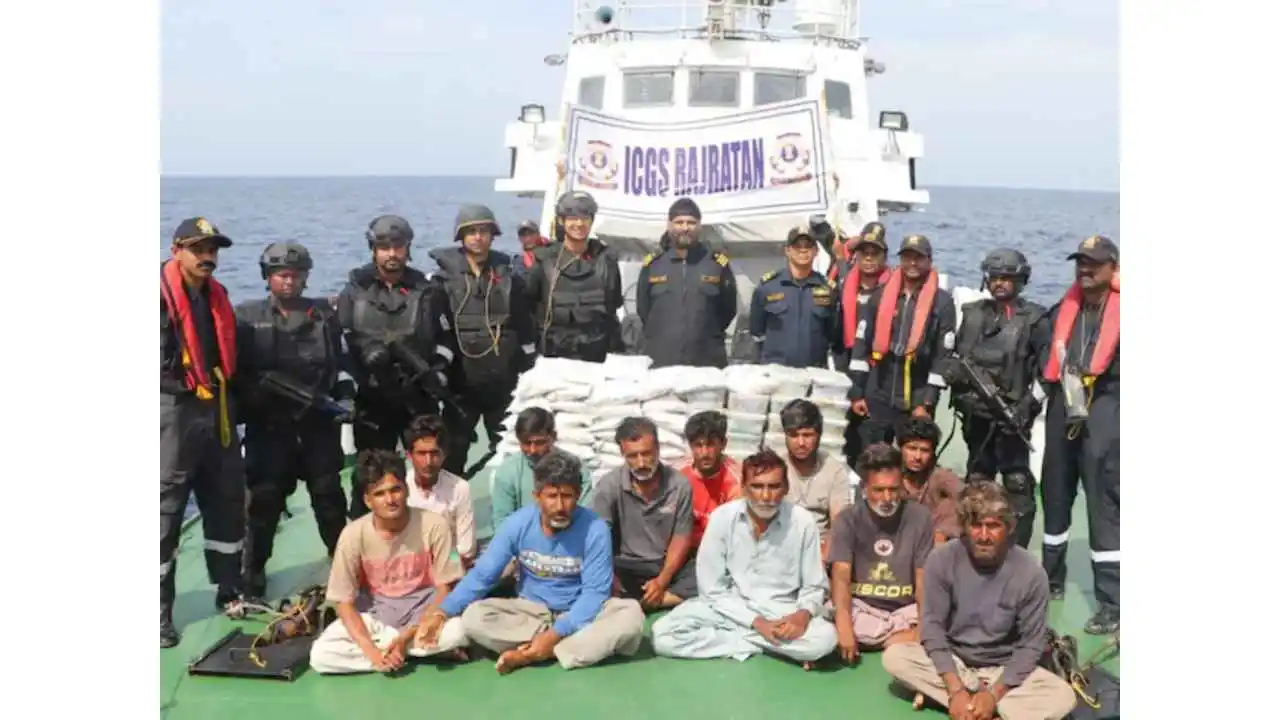
The Indian Coast Guard on Sunday announced the interception of a Pakistani vessel laden with 86 kg of narcotics valued at Rs 600 crore. Acting on intelligence, a joint operation involving the Indian Coast Guard, the Anti-terrorism Squad (ATS), and the Narcotics Control Bureau (NCB) was launched to combat drug trafficking in the area.
The operation was carried out by the agencies based on intelligence inputs received in the last few days. The Indian Coast Guard took to X and wrote in a breathtaking overnight operation, Indian Coast Guard undertook an intelligence-based anti-narcotics operation at sea on 28 Apr 24.
About 86 kg of narcotics which is worth Rs 600 crore has been apprehended along with the arrest of 14 Pakistani nationals. The operation was an epitome of inter-agency coordination wherein the Indian Coast Guard Anti-terrorism Squad and Narcotics Control Bureau collaborated seamlessly which resulted in the successful operation.
The ships and aircraft of the Indian Coast Guard had been deployed on concurrent missions to carry out the operation. ICG ship Rajratan, which had Narcitics Control Bureau and Anti Terrorist Squad officials embarked, positively identified the suspect boat.
No amount of evasive maneuvering tactics and resistance employed by the drug laden Pakistani boat could save it from the swift and strong action of ICG ship Rajratan. This operation took place on the basis of a tip-off by the Indian Coast Guard, Narcotics Control Bureau and Gujarat Anti-Terrorist Squad in the Arabian Sea near the International Maritime Boundary Line.
The operation was the 2nd major anti-narcotics operation carried out by the security forces in the Arabian Sea in 1 month. Earlier on February 26, 5 foreign nationals were held off the Porbandar coast with 3,300 kg of narcotics, including charas. Recently a boat carrying 60 packets of drugs was seized and 6 Pakistani crew members onboard the vessel were arrested off the Gujarat coast in a multi-agency operation in March.
-

 Entertainment16 hours ago
Entertainment16 hours agoIbrahim Ali Khan makes Instagram debut, first post goes viral
-

 Cricket news12 hours ago
Cricket news12 hours agoRohit Sharma to lead India at ICC Men’s T20 World Cup 2024, Hardik Pandya to be vice captain
-
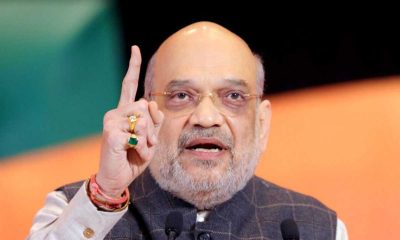
 Latest Politics News17 hours ago
Latest Politics News17 hours agoAmit Shah slams Congress over fake video, plays out actual video, says BJP supports reservation
-
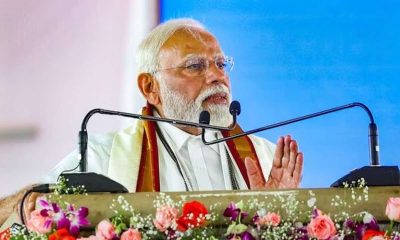
 2024 Lok Sabha Elections10 hours ago
2024 Lok Sabha Elections10 hours agoPM Modi says if Congress comes to power, they will bring out inheritance tax
-
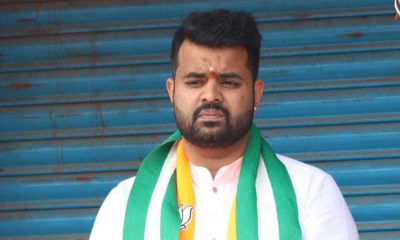
 Latest Politics News15 hours ago
Latest Politics News15 hours agoKarnataka MP Prajwal Revanna suspended from JDS over sex scandal

